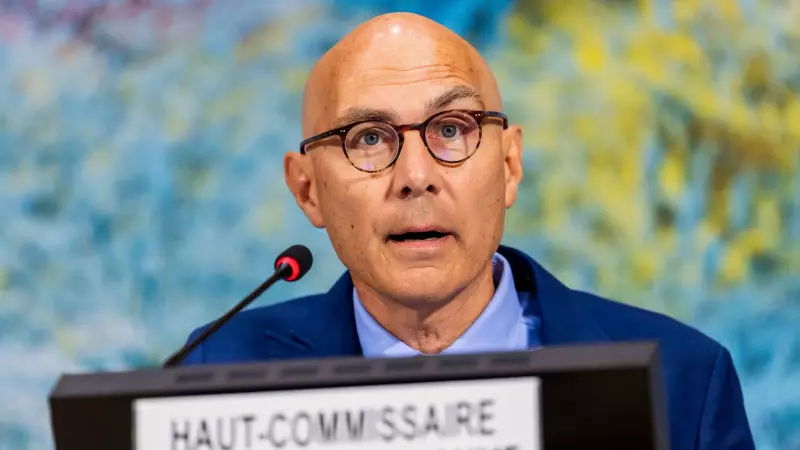
In a striking condemnation that has reverberated across diplomatic circles, the United Nations Human Rights Chief has delivered a powerful rebuke against recent US military actions targeting suspected drug trafficking vessels in international waters.
Strong Words from the UN's Top Rights Official
Volker Türk, the UN High Commissioner for Human Rights, did not mince words when addressing what he termed "unacceptable" military strikes conducted by United States forces. The operations, which targeted boats allegedly involved in drug smuggling, have drawn sharp criticism for potentially violating fundamental principles of international law.
"The use of military force against civilian vessels, even those suspected of illegal activities, raises profound concerns under international human rights law," Türk stated during a press briefing in Geneva. His comments represent one of the strongest international responses to US counter-narcotics operations in recent memory.
Legal and Humanitarian Implications
The UN rights chief emphasized that such military actions must comply with strict international legal standards, including:
- Proportionality in the use of force
- Necessity of military intervention
- Protection of civilian lives
- Adherence to due process standards
Türk's intervention comes amid growing international scrutiny of maritime counter-drug operations and their compliance with human rights standards. The UN official stressed that combating illicit drug trafficking, while important, cannot justify bypassing established legal frameworks.
Broader Concerns About Military Approaches
The criticism extends beyond immediate legal concerns to question the effectiveness of military solutions to complex drug trafficking challenges. Human rights advocates have long argued that such approaches often fail to address the root causes of drug trade while potentially escalating violence.
"There are serious questions about whether military strikes represent an appropriate or effective response to drug trafficking," Türk noted, suggesting that alternative approaches focusing on judicial cooperation and development might yield better long-term results.
International Response and Next Steps
The UN Human Rights Office indicated it would continue monitoring the situation closely and called for transparent investigations into the operations. The statement also urged all nations to ensure their counter-narcotics strategies fully respect human rights obligations.
This development marks a significant moment in the ongoing global debate about balancing security concerns with human rights protections, particularly in the context of transnational crime prevention efforts.





